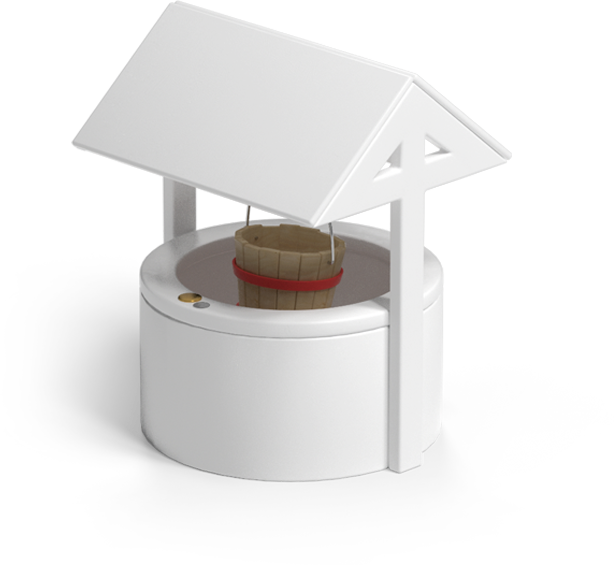How To Start A Property Business
Property is an asset that has always fascinated people who are looking to make money. There are many reasons for this; mainly because it can be lucrative, but also because it can provide a flexible lifestyle that you can largely control, it is accessible for self-starters and there are really no limits to how far you can take it.
By Jon Howe9/14/21

How To Start A Property Business
Property is an asset that has always fascinated people who are looking to make money. There are many reasons for this; mainly because it can be lucrative, but also because it can provide a flexible lifestyle that you can largely control, it is accessible for self-starters and there are really no limits to how far you can take it.
Another big reason why property is so popular as a means of making money, and which is not immediately obvious, is that it is an industry that is relatively easy to understand. Stocks and shares, for example, can be mind-blowing in its complexity, and you can send yourself mad trying to find ways to control what is happening to your money. But in comparison, property is a straightforward asset to understand, possibly because everyone needs a home and anyone can buy or rent one. So there is a base-level understanding. Furthermore, there are now so many ways we can research markets and locations, and find historical data on trends, and this leads us to conclude that while there are many different forces that can influence the property market, in general it is quite easy to predict.
So the property market produces a great amount of data and the different strands to it – buying/selling, estate agents, landlords, conveyancing, financing, property development etc – require different types of skill and expertise. This is why the options for starting a property business don’t begin and end with property development, and why you don’t necessarily need large capital reserves to invest in order to make money in property. If you have the skills, drive and ambition in any area of the property market, you can establish and develop a successful business, and this article will help to outline what options you have if property is your passion.
What types of property business are there?
Starting with the more obvious and popular ones, we will look at the various options here, which all appeal to different sections of the property community and require different levels of time, investment and expertise.
Buy-To-Let (BTL)
There are various elements to the BTL sector, but in essence, if you have the money to invest you can choose from one of several different markets in terms of the target client you want to deal with. The traditional market sectors are families, young professionals and students. But you could also consider more specialist markets such as serviced apartments, flats, houses of multiple occupation, low-income tenants, commercial developments, retail or industrial developments. This all depends on your market knowledge, your available capital and what locations you are looking in.
Another big factor with becoming a BTL landlord is whether you want to be hands-on or hands-off. A landlord has a lot of responsibilities and it can be a full-time job, which might be fine at the beginning, but might not appeal as you look to scale-up your business. Equally, sub-contracting these duties to a letting agent or property management company will eat into your profits. On the whole, when assessing the possibilities of BTL you need to consider key factors such as location, potential yield % and costs such as refurbishment and ongoing maintenance.
Buy-To-Sell (Flipping)
‘Flipping’ means buying a bargain property, spending some money doing it up, and selling it quickly for a profit. That’s how it works in (ideal) theory, but there are many things which can affect the success of that plan. Properties can be cheap for a reason, so you need to be sure it will eventually sell, and is worth spending say, £20,000 on it, if you are only getting the same or potentially less back. You don’t want a white elephant you can’t sell, and you don’t want to be losing money. So there are lots of things to balance with the buy-to-sell market, notably you need good knowledge of the location and potential buyers, you need good contacts in various trades to help you do the property up and you need good advice on financing the project. A lot of the success of ‘flipping’ is down to timing and holding your nerve, this might lead to short term cashflow problems, but in the long term, a little patience might be the right thing for your business.
Property sourcing
This is a way that you can use your market expertise without the associated risks of investment. Essentially you are finding suitable properties for other people and charging a fee for the service. This could be hunting down a bargain, or taking a ‘Location, Location, Location’ approach and finding properties that tick certain boxes for different types of buyer. In some ways you are a self-employed estate agent and it can be great fun using other people’s money, but it is also possible to run this kind of business alongside a BTL business. You will see a lot of properties on your travels, which will appeal in many ways, but perhaps don’t suit your investment strategy at that particular time. But you can still use this knowledge to help other people and improve your cashflow at the same time. Property sourcing is a great way to gather money quickly, which could help you fund your next BTL project, or could become a successful business in its own right.
Property auctions
Property auctions are a popular way for developers to pick up bargains, but they can be a challenging arena for the novice investor to navigate, with lots of potential pitfalls involved. You could build a business around helping people successfully negotiate an auction – selecting suitable properties, advising on/researching properties, bidding on their behalf etc – or you could stage property auctions yourself if you have a good knowledge of the local market and lots of contacts.
Repossessions
This is a niche area of the market which requires good knowledge and expertise and where there is scope to help people avoid falling into traps, if not literally, at least figuratively. Houses can be vacant and/or repossessed for many different reasons, but in most cases they are being sold by mortgage companies and they and the estate agents wish to hide the fact they are repossessed. A mortgage company wants rid of the property quickly, but if the buyer knows it is a repossession, they will spy a bargain and bid accordingly. So there are ways that you can spot a repossession or have an eye on the market to know when a property has been vacant for some time and there is potential to grab a bargain for someone, or even perhaps yourself. Advising on repossessions may not be a full-time business in itself, but it can be a useful strand to your property business.
Rent a room out
If you like the idea of being a BTL landlord, but not the expense or time, you can carve out a nice, tidy income by renting a room out in your own home. There is very little hassle involved, but a handy and reliable income stream and very little risk, as long as you don’t mind accepting a stranger into your home, but of course it is your responsibility to suitably vet potential tenants. Depending on the location of your property, an extension to this is to consider letting your home as a holiday let or as an Airbnb-type let.
Joint venture
Another variation on the BTL theme is to group together resources with trusted partners to undertake a joint venture. So if you have no money but a good market knowledge and work ethic, you could partner with an investor to get into BTL with a much-reduced level of risk. Equally, you could be the investor and a sleeping partner, while someone else does all the work. Potentially, money can go much further using this route and you are spreading the risk also, but you do need to research the legal aspects of joint ventures and how income and liabilities are distributed.
Property crowdfunding
This is an extension on the idea of joint ventures, because property crowdfunding can be a nice little earner with little to no risk involved. And there is no limit to how many crowdfunding projects you can get involved with, which can allow you to build a diverse property portfolio with various different income streams.
Letting agent
If you love the hands-on element of being a landlord but not the investment risk, then you can swap roles to become a letting agent or a property management company. This is a very involved role - dealing with contracts, finding tenants, vetting tenants, sorting repair and maintenance issues etc – but is absolutely crucial to the BTL market, where simple supply and demand economics suggest you should never be short of business.
Independent advice
The process of buying and selling property is well-established but can still be a minefield for those new to it, or short on time and knowledge. Good, trusted and independent advice can be crucial at various stages and basically essential to the process also. So setting up a business offering qualified and licenced financial or legal advice puts you right in the middle of the property market, with lots of areas of work available to you. Of course this requires a few years of qualifications and building credibility for yourself, but carrying out mortgage brokering or specialist property conveyancing is essential work and people pay good money for it.
What skills or expertise will I need?
As we have tried to outline in the above sections, building a successful property business is not necessarily about how much money you can invest. It could be as much about what you know, or even who you know.
Of course if you have some equity already built up in a property, or have a good amount of funds you can invest, then the BTL or buy-to-sell markets are open to you. But you still need a pretty heaving contacts book and some good market knowledge to make that a success. If you possess the skills and knowledge to run a BTL property, no funds, but have a friend willing to invest, then a joint venture might be ideal for you.
Property crowdfunding might appeal if you are a novice investor looking to learn the ropes, or you only want a part-time, low-risk business.
If you have lots of time available but no money to invest, then property sourcing, auctions, repossessions or being a letting agent might appeal to you. These are specialist areas of the market and you need to demonstrate your expertise and build trust and credibility to be a success in these areas, but these can be lucrative for a property business because people are investing in your knowledge and the time you are willing to spend learning and understanding the local market.
Whichever route you decide to go down there are some common skills and characteristics you will need; namely patience to be able to wait for the right time or opportunity to buy/sell, strategy and long-term thinking to ensure you are building your business along the right lines and an analytical mind to study and research local markets to demonstrate an ability to offer trusted, informed and reliable advice.
How to be successful in property
It is easy to suggest that you face two choices when trying to assess which type of property business you want to start; ie. are you a risk-taker or a work-horse? In other words, do you have the money to invest and are you happy to invest it? Or would you rather do the leg-work, spread your knowledge and help other people invest their money?
In truth, and hopefully this has been outlined in the sections above, there are ways to combine the two and build a very successful property business. But as with most business sectors, there are some golden rules to abide by:
- Have an exit strategy – This can be for the business itself, or for an individual project such as buying a BTL property. But essentially, when you go into something, you need to have a plan for how you are going to get out of it. This could be to cut your losses if things aren’t working out, or to ensure the most lucrative outcome. Either way, having an exit strategy is essential to the long term health of your business.
- Always know where the money is – If you are starting to lose sight of where your money is, and it is tied up in an increasingly complex web of properties, debtors, creditors and loan applications, then it might be time to step back and re-think. Cashflow is essential to a business, but you can survive without it in the short term if you know where the money is and it has at least ‘some’ liquidity. However, you should always know where it is and how you can get hold of it.
- Know your market – This relates to the people or tenants your business is dealing with, or the location you are dealing with. There is no substitute for good market knowledge and there is no way you can take short cuts and still attempt to grow your business.
- Don’t assume you can replicate knowledge of one area in another area – Again, this could be relating to tenants, properties or location, but what has worked in one market sector might not necessarily work in another. The only answer is research, and lots of it.
- Can you grow the business to match your ambitions? Some of the business options we outlined above might not have the scope to match your career aspirations or your income needs, but they might currently match your knowledge and experience. So is that particular business the right one for you? Can you develop it and scale it up over a number of years, or will it always be a niche area with steady but limited income streams? That might suit some people, but maybe not all.
- Don’t overstretch yourself – Financially and in terms of time and health, it is very easy to get too involved in a property business and lose sight of the key details. Confused strategies and knee-jerk decisions can lead you down this path, so establishing and sticking to a clear plan is often the best way to remain in control.
- Don’t panic – Easy for us to say, but if you have a strong plan and a good exit strategy then you should stick to it and be brave. It is very easy to panic and make short term decisions in the heat of the moment. A good property business often requires time to grow, and there is plenty of historical evidence to support that, so if your business plan made sense at the outset and you are making good, informed decisions in the meantime, patience and a level-head can be your biggest assets.
Take a look at our other articles




